Diversity and Inclusion Summer School Speakers
Keynote Speakers
 |
Professor John List, University of ChicagoThe Voltage EffectJohn List is the Kenneth Griffin Distinguished Service Professor of Economics, Department Many college students will graduate into the world with a bold idea they hope to scale – whether by starting a company, through social advocacy or non-profit work, in the private sector, or elsewhere. The book draws on John's years of behavioral science research, as well as examples from the realms of business, education, policymaking, and public health to present a data-driven approach to the science of scaling. https://voices.uchicago.edu/jlist/ https://www.linkedin.com/in/john-list-4727b6a/ |
 |
Ghazala Azmat - Professor of Economics at Sciences PoEarly Professional Aspirations and Later Labor Market OutcomesEstablishing gender equality has been one of the most important global objectives in recent times. A large part of the gender pay gap is often attributed to differences in choices – such as occupational and educational. However, many of these choices have roots that are less well-understood. To understand this process, it is crucial to understand the role of aspiration in driving the choices made by individuals before entering the labor market or early in their career. My talk will discuss the formation, and role, of aspirations in understanding gender differences in labor market outcomes. |
nk opens in a new windowLink opens in a new window
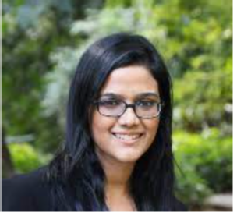 |
Ishani Aggarwal - Assistant Professor EBAPE, BrazilThe Several Types of Team DiversityIshani will explore the topic of team diversity, including its several types (such as deep-level and surface-level), its compositional configurations, and provide an overview of the associated theories. Ishani will also highlight the impact of team diversity on team processes and outcomes and discuss if, and how, the influence of diversity on team performance changes from one task context to another. |
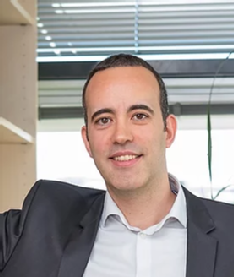 |
Loukas Balafoutas - Professor of Experimental Economics, University of InnsbruckGender Inclusive Language and economic decision makingLoukas will investigate how the use of gender-inclusive language affects the willingness of men and women to engage in competition and to assume leadership roles. In a controlled laboratory experiment, Loukas has varied the wording of the instructions given to participants, following the recommendations of policy bodies on how to implement gender-inclusive language. We do so for a grammatical gender language (German) and a neutral gender language (English). |
 |
Patrick Button - Professor of Economics, Tulane UniversityHow to be a discrimination detective: tips, resources, and advice for conducting an audit field experimentAudit field experiments are a powerful way to estimate if discrimination occurs in real-life market interactions, such in employment, housing, and healthcare. However, there are numerous factors to consider when designing an experiment. In this presentation, Patrick Button will seek to pass along advice, resources, and tips that will help you as you (possibly) seek to design your own audit field experiment. |
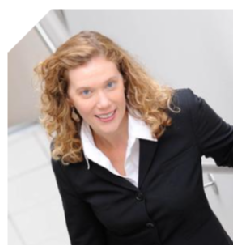 |
Dawn Eubanks - Associate Professor of Behavioural Science, Warwick Business SchoolWomen and Leadership: It’s uh…ComplicatedWomen remain a scarce commodity in top leadership positions. In this talk I will discuss some of the reasons for this and try to unpick this complexity with an eye on remedies. I will also provide some information about effective strategies for women as they take on leadership roles. Who should attend: Women. Men who care about women. Men who work with women. Everyone! |
 |
Lucy Eyre - Principal Economist, Office of Communications, UKDiversity issues faced by the economics group in OfcomThis talk will cover the diversity issues faced by the economics group in Ofcom, for example the lack of women in senior roles and few colleagues from certain ethnic backgrounds. Lucy will also discuss the practical and concrete steps that have been taking to address this, both in the economics group and in Ofcom as a whole. This includes approaches to recruitment and also policies to encourage inclusion. |
 |
Lata Gangadharan - Professor of Economics, Monash UniversityPerformance Evaluation and the Gender-Leadership GapGender could distort performance evaluation in different kinds of environments. I will discuss two environments. One is where outcomes are determined by leaders’ unobservable effort choices and luck. Evaluators in this case would have to form beliefs about leaders’ effort choices and decide on discretionary payments. We find that while the payments made to male leaders are determined by both outcomes and evaluators’ beliefs, those made to female leaders are determined by outcomes only. Second, the nature of the organizational environment, competitive versus cooperative, could influence performance evaluation. We find that despite equal effectiveness, female leaders receive more negative evaluations, but only in the competitive environment. |
 |
Suqin Ge - Professor of Economics, Virginia TechNew technologies and job opportunitiesTechnological progress in automation is poised to change the future of work. New technologies may have the potential to equalize job opportunities or enlarge the existing inequality in the labor market. In Prof. Ge’s talk, she will discuss the effects of two automation technologies, industrial robots and computing equipment, on the gender wage gap in US. She will also show some experiments that examine how exoskeleton technology affects the endurance, safety, and productivity of individuals with different demographic characteristics (such as gender and age). |
 |
Andreas Leibbrandt -Professor of Economics, Monash UniversityDoes AI-assisted recruiting encourage or discourage female job-seekers in male-dominated industries?
|
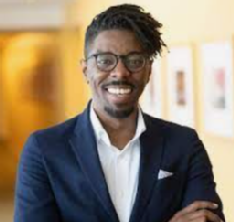 |
Jeraul Mackey - Assistant ProfessorHoping for Equity, While Rewarding EqualityThis talk will focus on the unintended consequences of implementing fair-minded hiring rules in organizations without a history of discrimination. Drawing on insights from an 18-month ethnographic study of the hiring process at two national US-based employers, I will discuss the paradox of materially fairer processes producing unequal outcomes for job seekers of color. |
 |
Tigran Melkonyan - Professor of Economics,
|
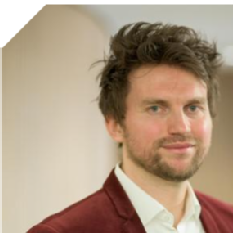 |
Redzo Mujcic - Assistant Professor of Behavioural Science, Warwick Business SchoolAcademic Lead on the 2022 Summer School.Hidden Discrimination in Everyday LifeRedzo's talk will cover evidence of discrimination in everyday marketplace interactions – that are usually unregulated and fall into the category of “discretionary favours” or “private accommodations”. What are some examples of such hidden favours? How can we detect the extent and nature of such discrimination? What are the pros and cons of some of the methods used by researchers studying this topic? Can we measure the psychological and economic costs suffered by discriminated citizens? Some future research directions and challenges will also be discussed. Redzo's research is primarily in applied economics and quantitative social science. In particular, he focuses on the empirical study of human well-being, cooperation, and discrimination. In his work, he uses a range of methods including large longitudinal surveys and field experiments.
|
 |
Asaf Zussman - Associate Professor, Department of Economics, Hebrew University of JerusalemDiscrimination and bias in market and non-market settingsIn my lecture, I will discuss my research on discrimination and bias in market and non-market settings. This includes research on ethnic discrimination in the market for used cars in Israel, research on ethnic and gender ingroup bias (the preferential treatment of members of one’s group) in courts and driving tests in Israel, and research on political bias in grading in an elite university in the United States |
 |
Michael Price - Professor of Economics,
|
Link opens in a new windowLink opens in a new window
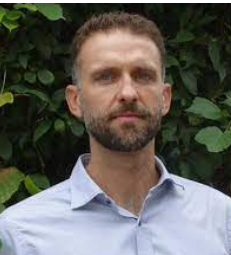 |
Michael Vlassopoulos - Professor of Economics at the University of SouthamptonDiscrimination and Social IdentityMichael will be discussing his research in this area drawing on various field and lab-in-the-field experiments focusing on understanding barriers and helping identify policies to improve the standing of vulnerable groups (e.g. racial and ethnic minorities, refugees) |
